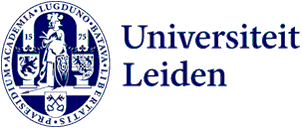Studying
It is possible to develop and improve your study skills. By using the SMART method you can learn to study strategically, be academically competent, have confidence about taking exams and manage your time well. Of course all this is only possible if you put in enough hours.
For a sound study approach the following aspects are important:
- Academic competence: interest in your studies and confidence to succeed
- Exam competence: confidence that you can pass exams
- Time management: balancing the time you spend on studying and other activities
- Studying strategically: matching your preparation to the requirements of your exams
- Study hours per week: investing enough time in your studies
Want to know your SMART score? Take the SMART test and discover your strengths as well as the points you could improve.
Ten tips for studying better
|
Do |
Don’t |
|---|---|
|
1. Study actively and productively. |
1. Passively soak up information like a sponge. |
|
2. Differentiate between main and side issues. |
2. Try to learn everything. |
|
3. Take brief notes, make an outline or a mind-map, ask yourself questions, etc. |
3. Just skim the texts or summarise them too extensively. |
|
4. Try to understand the materials but, when necessary, also memorise important facts. Lecturers will give you clues as to what is important. |
4. Only have a general understanding of the materials, or be unable to fall back on important basic knowledge. |
|
5. While studying test your knowledge by asking yourself questions, discussing the material with others and looking at past exam papers. |
5. Assume too quickly that you know the materials, or keep reading materials without assessing how well you actually know them. |
|
6. Keep up your interest and enjoyment in your subject. |
6. Feel that the only reason you are studying is to pass exams. |
|
7. Build up confidence in yourself as a student by setting achievable goals and thinking realistically about how you can improve your own performance. |
7. Underestimate yourself (I can’t do it, I passed because I was lucky), or overestimate yourself (I should be able to manage it in this short amount of time). |
|
8. Organise your work, start revision and assignments in good time and study at a steady pace. |
8. Let yourself get side-tracked: thinking about your free time whilst studying and vice versa, starting revision or assignments at the last minute, letting yourself be too easily distracted. |
|
9. Make sure you have a suitable place to work. Find out where you are able to study most effectively. |
9. Have a cluttered desk with insufficient room for your study materials; or a noisy workplace where people keep disturbing you. |
|
10. Have a good strategy for your exams. |
10. Just see how things go, because it’s down to luck on the day. |
Workshops and training courses
Would you like to improve your SMART score? As a Leiden University student you can join one of our study skills workshops.
Free online programmes
GezondeBoel offers free online self-help programmes on studying:
Study strategies
A focussed start (in Dutch)
How do you chair a workgroup? How do you create a clear visualisation for your presentation? And how do you write a solid introduction for a scientific article? You’ll find answers to these questions — and many others — on the Science Skills Platform.
The platform is freely available via Brightspace for all students of the Faculty of Science. You can use it whenever you like: to practise a skill, prepare for an assignment or refresh your knowledge. Some lecturers have already integrated the platform into their courses, but you can also use it independently for other modules.
Why use it?
Throughout your studies, you’ll need to apply a wide range of skills. But sometimes you may not get the explanation or examples you need. The Science Skills Platform offers extra support, so you can always move forward.
It also helps you to work more consciously on developing your skills. This is useful not only for your studies, but it also gives you a head start when you transition into the job market.
What do other students think?
-
“Use it! Even if it’s just for the examples. It helped me enormously!”
-
“I definitely recommend it to other students, especially the modules on writing and presenting.”
Questions or ideas?
The Science Skills Platform is continuously evolving. Do you have an idea for a new module, think something could be improved, or have a question? The team would love to hear from you! Feel free to contact the Science Skills Team.
